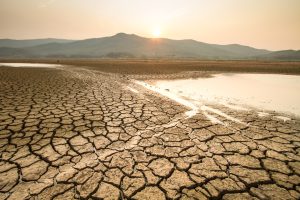The changing climate
Such heat in Italy had never been seen. In the past month-just to mention one of the many effects of the changing climate-. the
report
most recent ANBI reported a halving of the Po’s flow rate. The wave of drought that is affecting Italy and other European countries-even in the north of the Continent-induces reflection on the most obvious consequences of this climate change, not only in terms of damage to agriculture but also all the possible fallout in the economic sphere and natural disasters.

Climate change, the United Nations International Labour Organization has previously said, will cause an economic loss of $2.4 trillion and destroy
80 million jobs
By 2030. According to a recent report published by the European Trade Union Institute, climate change is also likely to further exacerbate social inequalities among workers. The effects resulting from climate change are already among us and are endangering the health, safety, and welfare of workers (
Il Sole 24 Ore
).
- What does the world think about climate change? 5 stories to consider (
World Economic Forum
).
Manual labor
In fact, heat is an occupational hazard especially for manual workers, those who are less skilled, generally seasonal, characterized by low income and tasks that require physical exertion outdoors. Although there are wage bonuses for repeated exposure to the sun, in any case these are not significant bonuses to overcome unacceptable conditions of inequality in the labor market.
Several studies, moreover, support how heat waves on workers result in reduced productivity and competitiveness of the entire economy. Reason why in past years it was the EU Commission itself that had granted budgetary flexibility to countries affected by natural disasters of this kind, in order to come to terms with the economic damage (
The Post
).
Agricultural sector
Ça va sans dire that drought is also becoming a big problem for businesses in the agricultural sector. Farmers and consortia cannot do much in the short term to solve the exceptional water shortage.
Solutions are few, expensive, and inconclusive. The effects of higher temperatures could prompt a general rethinking of water consumption in an industry that uses about 70 percent of all water from rivers, lakes and groundwater. Many farms have been aware of this for some time and are therefore calling for a change in irrigation methods, as is already happening in the
Pavia province
, where drought is forcing a rethink of rice fields.
- Drought is also a problem for gas-fired power plants (
The Post
).










0 Comments